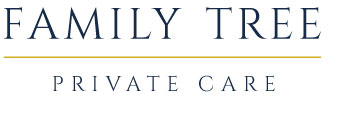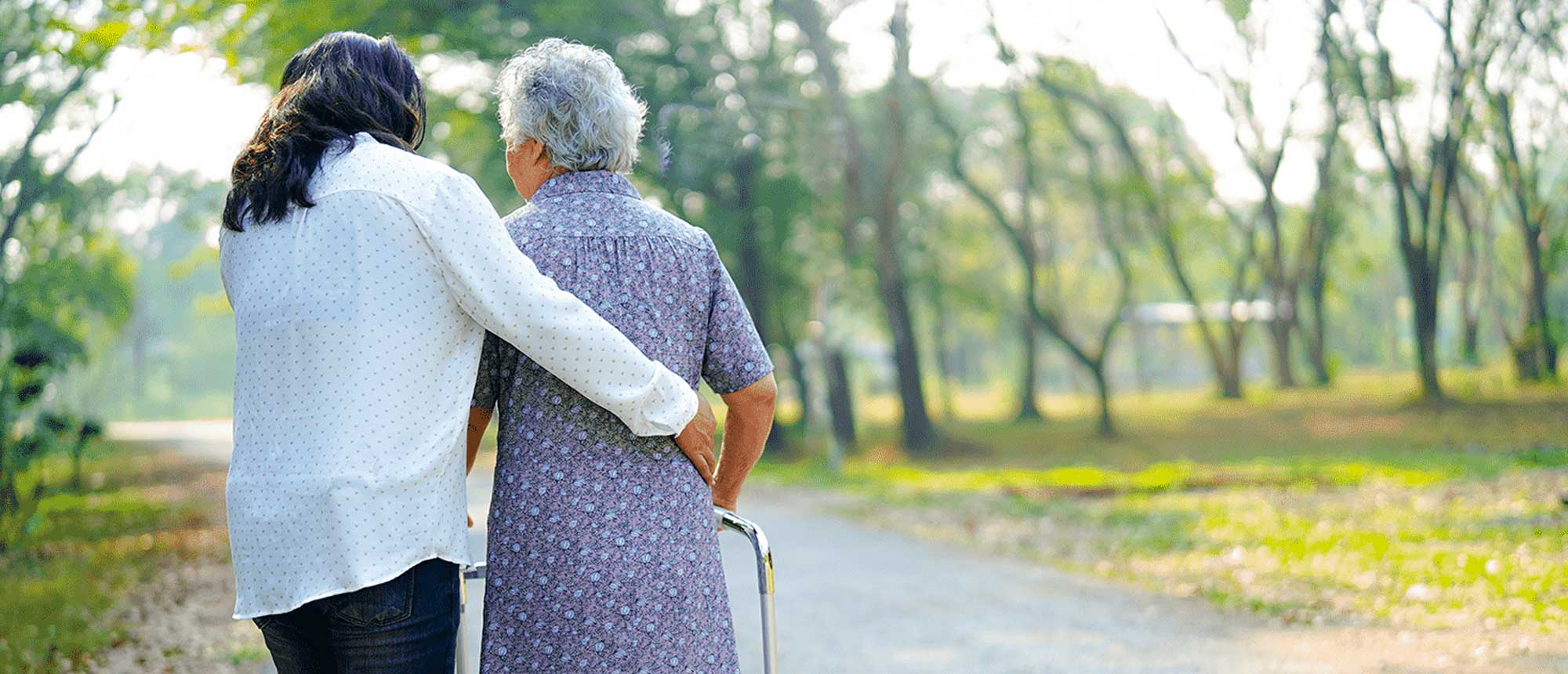05 Mar 7 Signs Your Senior Parent Should No Longer Be Living Alone
As our parents age, we often reach the time when a family has to decide if it is no longer safe for a senior to be living alone. Decisions about how to care for the people who raised us are some of the hardest of our adult lives. Of course, we want to do right by the people who nurtured and supported us, but we often have the pressures of jobs, families, and myriad other duties. However, life is busy, and it can be hard to give the time and attention our elderly parents often need. It can even be hard to notice that our parents need extra help since many older people feel ashamed or guilty about no longer being able to live optimally on their own. Other seniors deny or don’t even realize that living alone is more than they can handle.
Understandably, many older folks want to remain in their homes, even if the prospect is overwhelming. Home is the place they have always known, after all, and they would rather be surrounded by their memories and belongings, as opposed to living in an unfamiliar and, likely, much less cozy and comfortable place. What’s more, many older folks have strong community ties, and they don’t want to start over elsewhere. Finally, many older adults value their freedom and independence and worry that these things would be compromised if they were to move into an assisted living facility or nursing home.
If you have parents or other loved ones who are getting along in years but are committed to living alone in their homes, keep an eye out for these signs that might indicate your senior loved one is no longer safe at home alone and may need extra assistance.
1. They’re Always Exhausted
While everyone has their tired days, persistent exhaustion can be a sign of physical or emotional illness, reports the National Institute on Aging. The list of medical conditions linked to fatigue is long: fibromyalgia, rheumatoid arthritis, diabetes, cancer, as well as heart, liver, kidney, and thyroid diseases, to name just a few. Mental health issues like anxiety, depression, grief, and stress can also negatively impact sleep and lead to exhaustion.
2. They’re Denying or Trying to Hide Problems
Maybe they missed a doctor’s appointment or forgot to take their medicine. While these things can happen to everyone living alone once in a while, when they happen repeatedly, and when parents omit telling you about these occurrences or deny them completely, this may be because they are covering up memory issues or mobility problems. If they become defensive, this may show that, on some level, they understand that there is a problem, but feel ashamed or afraid to admit it.
3. They Get Lost Going to Familiar Places
When older folks get lost going to the grocery store or community center that they have been to hundreds of times before, this is cause for concern. While it is normal for pattern recognition to decline in later years, making familiar places seem less familiar, frequently getting lost could also signify dementia or Alzheimer’s.
4. They Are Having Trouble With Basic Self-Care
If you have noticed your parent’s hygiene slipping, it may mean that they don’t have the energy to shower, or that they are afraid that they might fall in the bathroom. In some cases, a refusal to shower can point to Alzheimer’s or dementia. Similarly, if their clothes aren’t clean, and they are wearing the same outfit several days in a row, this might point to depression, fatigue, or again, mobility issues, seeing as many laundry rooms are not on the same floor as living spaces.
If you notice sudden weight gain they may be over-relying on heavily-processed convenience food, because they don’t feel like cooking. Similarly, sudden weight loss can indicate illness due to living alone, or can mean that they aren’t cooking due to physical pain, exhaustion, depression, or forgetfulness.
5. They Aren’t Very Mobile and May Be Falling
If your once-active parent now spends most of their time in bed or on the couch, it might not be an illness that is keeping them there. They may be afraid to move around too much for fear of falling. If you notice the older adult in your life hobbling, or taking small, uncertain, and/or shuffling steps, it’s worth paying some extra attention to their movements. Also, keep an eye out if they are using the wall or banister to steady themselves, which may indicate weakness, a lack of balance, or vertigo. Lastly, if you see unexplained bruises on your parent’s skin, it is possible that those are the result of falls.
6. The Yard/House Is Clearly Not Being Taken Care Of
While not many people love cleaning their homes, it’s just one of those things everyone makes peace with sooner or later. If you walk into your parents’ house and see more than a month’s worth of dust, dirt, scuzzy dishes, or pet hair lying about, it may mean that they are having a hard time with upkeep. Stacks of unopened mail and general clutter may also indicate that they aren’t staying on top of things. Similarly, if they have a yard, look for uncut grass, unattached downspouts, broken fences or windows, un-shoveled show, and other signs of disarray. If your parents can’t take care of their house or their yard, chances are they need some extra help taking care of themselves instead of living alone.
7. They’ve Become More Isolated
If your elderly parents used to socialize with friends and family regularly, and have recently curbed these activities, they may be suffering from physical or mental illness. Depressed people show a lack of enthusiasm for the things they used to enjoy, and similarly, there is nothing like poor physical health to make one want to hole up inside and not see anyone or do anything. Increasing isolation may be a cry for help, especially for older folks who feel shame or guilt for feeling bad, and would rather disappear than ask for help.
Learn More About If Your Parent Should No Longer Be Living Alone
While it’s never easy to watch our once vibrant and vivacious parents age and become less active and mobile, the good news is that there are many more care options available to older adults than there once were. Sterile and depressing nursing homes are not the only way to care for aging loved ones. In fact, in-home senior care is the fastest growing type of elder care. In-home care is growing in popularity because it can be customized to the specific needs of the recipient, and caregivers can act as companions, and not just healthcare providers. It often tends to be more affordable than full-time assisted living facilities. Most importantly, our aging parents can receive the care they need while staying surrounded by the people, memories, belongings, and surroundings they have always loved. [/vc_column_text][/vc_column][/vc_row][vc_row row_height_percent=”0″ override_padding=”yes” h_padding=”7″ top_padding=”2″ bottom_padding=”2″ back_color=”color-599413″ overlay_alpha=”50″ equal_height=”yes” gutter_size=”3″ column_width_percent=”100″ shift_y=”0″ z_index=”0″ uncode_shortcode_id=”154758″ back_color_type=”uncode-palette” shape_dividers=””][vc_column column_width_percent=”100″ gutter_size=”0″ override_padding=”yes” column_padding=”0″ style=”dark” overlay_alpha=”50″ shift_x=”0″ shift_y=”0″ shift_y_down=”0″ z_index=”0″ medium_width=”0″ mobile_width=”0″ width=”1/3″][vc_column_text]
Over the past decade, our dedicated in-home caregivers and private nurses have proudly provided families with peace of mind.
[/vc_column_text][/vc_column][vc_column column_width_percent=”100″ position_vertical=”middle” align_horizontal=”align_center” gutter_size=”3″ style=”light” overlay_alpha=”50″ shift_x=”0″ shift_y=”0″ shift_y_down=”0″ z_index=”0″ medium_width=”0″ mobile_width=”0″ width=”2/3″][vc_raw_html]JTNDc3BhbiUyMGNsYXNzJTNEJTIyYnRuLWNvbnRhaW5lciUyMiUyMHN0eWxlJTNEJTIyZGlzcGxheSUzQSUyMGlubGluZSUzQiUyMG1hcmdpbi1yaWdodCUzQSUyMDEwcHglM0IlMjIlM0UlM0NhJTIwc3R5bGUlM0QlMjJmb250LXNpemUlM0ElMjAxNXB4JTNCJTIyJTIwaHJlZiUzRCUyMiUyM2NvbnN1bHRhdGlvbiUyMiUyMGNsYXNzJTNEJTIyY3VzdG9tLWxpbmslMjBidG4lMjBib3JkZXItd2lkdGgtMCUyMGJ0bi0yJTIwYnRuLWNpcmNsZSUyMGJ0bi1pY29uLWxlZnQlMjIlMjBkYXRhLXRpdGxlJTNEJTIyR2V0JTIwU3RhcnRlZCUyMiUzRVJFUVVFU1QlMjBBJTIwQ09NUExJTUVOVEFSWSUyMENPTlNVTFRBVElPTiUzQyUyRmElM0UlM0MlMkZzcGFuJTNF[/vc_raw_html][/vc_column][/vc_row]


